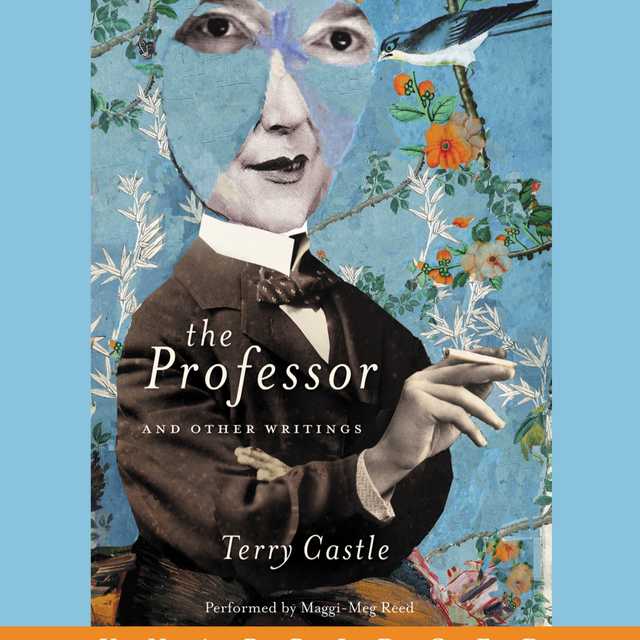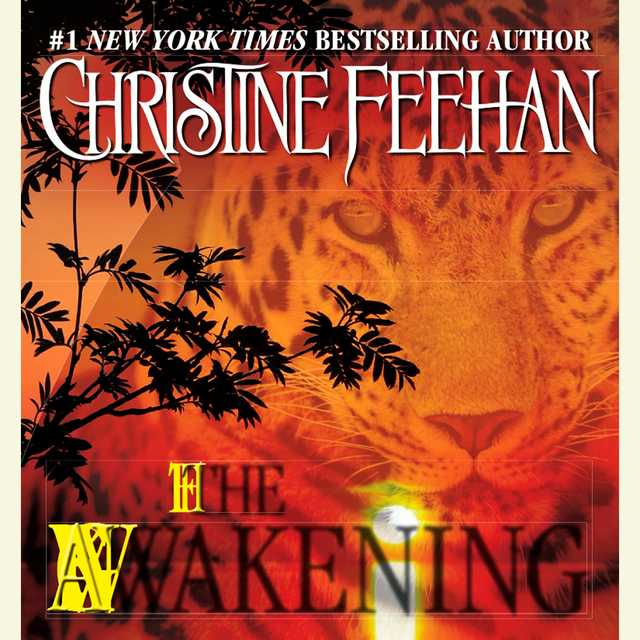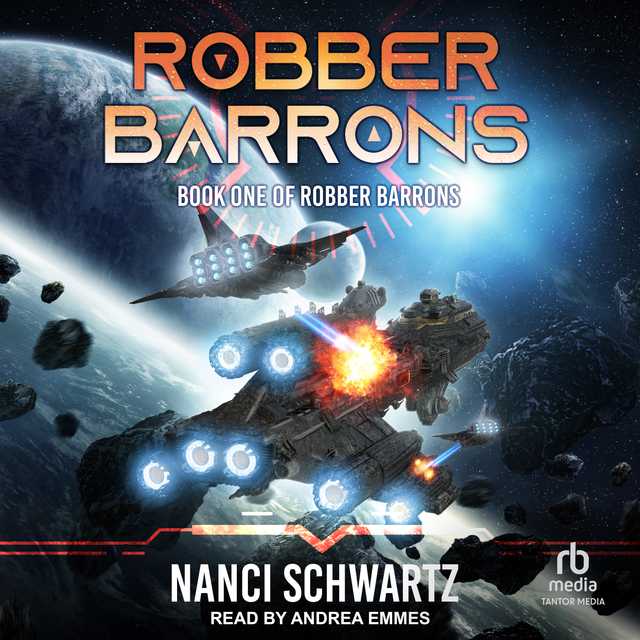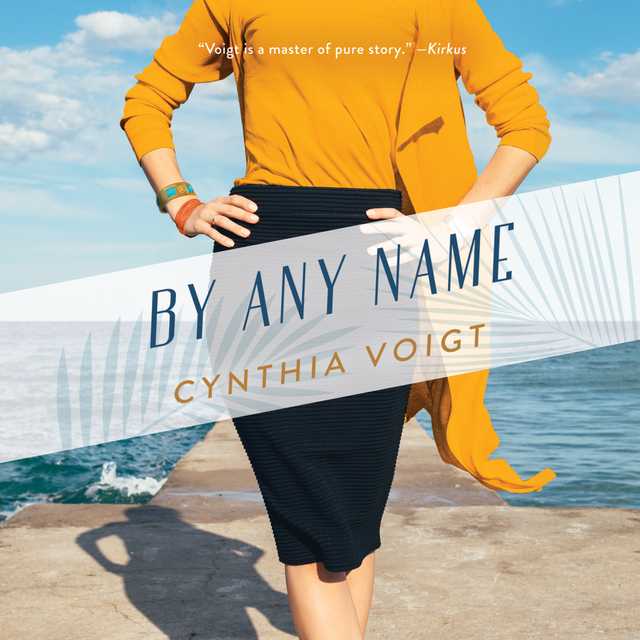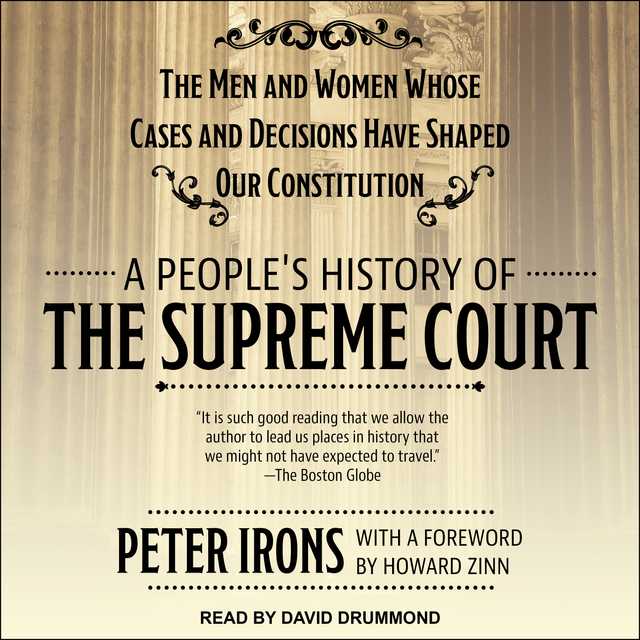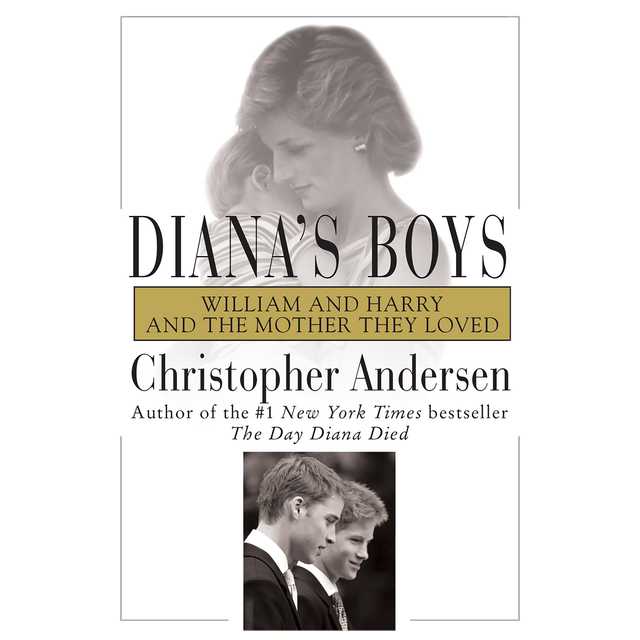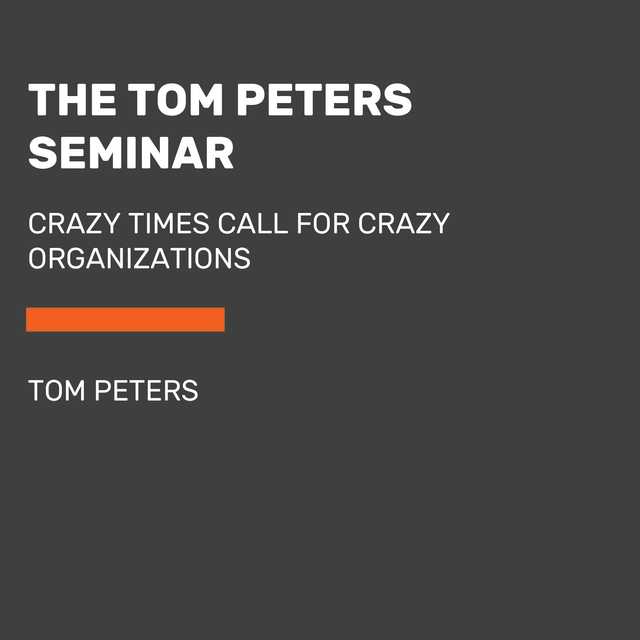The Professor and Other Writings Audiobook Summary
“[Terry Castle is] the most expressive, most enlightening literary critic at large today.” –Susan Sontag
From one of America’s most brilliant critics and cultural commentators, Terry Castle, comes The Professor and Other Writings: a collection of startling, gorgeously-written autobiographical essays and a new, long-form piece about the devastation and beauty of early love. James Wolcott, contributing writer to Vanity Fair, calls Terry Castle a “Jedi knight of literary exploration and lesbian scholarship,” and The Professor and Other Writings “a greatest-hits package of show-stopping monologues and offhand-genius riffs.” The Professor and Other Writings is a hilarious and heartbreaking exploration of gender, identity, and sexuality in the grand tradition of such feminist luminaries as Susan Sontag, Camille Paglia, and Joan Didion.
Other Top Audiobooks
The Professor and Other Writings Audiobook Narrator
Maggi-Meg Reed is the narrator of The Professor and Other Writings audiobook that was written by Terry Castle
Terry Castle was once described by Susan Sontag as “the most expressive, most enlightening literary critic at large today.” She is the author of seven books of criticism, including The Apparitional Lesbian: Female Homosexuality and Modern Culture (1993) and Boss Ladies, Watch Out! Essays on Women and Sex (2002). Her anthology, The Literature of Lesbianism, won the Lambda Literary Editor’s Choice Award in 2003. She lives in San Francisco and is Walter A. Haas Professor in the Humanities at Stanford University.
About the Author(s) of The Professor and Other Writings
Terry Castle is the author of The Professor and Other Writings
More From the Same
- Publisher : HarperAudio
- Abraham
- American Gods [TV Tie-In]
- Dead Ringer
- House of Sand and Fog
- Prey
The Professor and Other Writings Full Details
| Narrator | Maggi-Meg Reed |
| Length | 13 hours 4 minutes |
| Author | Terry Castle |
| Publisher | HarperAudio |
| Release date | January 19, 2010 |
| ISBN | 9780061991516 |
Additional info
The publisher of the The Professor and Other Writings is HarperAudio. The imprint is HarperAudio. It is supplied by HarperAudio. The ISBN-13 is 9780061991516.
Global Availability
This book is only available in the United States.
Goodreads Reviews
Sara
April 05, 2021
Sain tämän ikuisuusprojektin viimein päätökseensä. Aloitin lukemisen viime lokakuussa aika lailla heti kirjan saatuani. Tänään viimeisiä sivuja lukiessani mietin, että syynä luku-urakan kestoon on ollut enemmän keskittymiskyvyn puute kuin itse teksti, sillä Castlen teksti soljuu kyllä kevyesti. Okei, Courage, mon amien luin valikoivasti, koska aihe ei vaan kiinnostanut yhtään.Terry Castle on Stanfordin yliopiston kirjallisuuden professori ja julkilesbo, joka on kirjoittanut ennen kaikkea naisten homoseksuaalisuudesta kirjallisuudessa. Tämän vuoksi hänen yleisönsä jää valitettavasti melko rajatuksi.The Professor, a sentimental education (en löytänyt GR:stä omaa painostani) on kokoelma esseitä, joissa Castle yhdistää tunnustuksellisen oman elämänsä kuvaamisen kirjallisuuskritiikkiin. Castlesta piirtyy esseiden perusteella kuva yhtä aikaa kirjallisuusviittauksia rasittavuuteen asti tiputtelevana, syvällä akateemisessa maailmassa liikkuvana älykkönä ja ilkikurisena ikuisena lapsena, jonka silmissä tuikkii ja joka tarkastelee maailmaa ja sen tapahtumia väsymättä. Tunnen jonkinlaista sielunsisaruutta: tiedonjanon, jopa tietynlaisen snobiuden, raivorehellisyyden ja ilkikurisuuden yhdistelmä on minulle kovin tuttu. Castle vaikuttaa olevan vielä minuakin pahempi over-sharer, mikä erityisesti sai sydämessäni läikähtämään.Castlen oppineisuuden ja sivistyksen edessä toki tuntee itsensä kovin pieneksi ja mitättömäksi. Name- ja oeuvredroppailu menee liiallisuuksiin, mutta senkin kestää, kun Castle palauttaa katseensa omaan arkipäiväisyyteensä ja maailman banaaliuteen.Jos Castle on edes murto-osaksi yhtä hauska ja valloittava kuin se kuva, jonka hän itsestään antaa, on vaikea kuvitella, ettei hänen seurassaan viihtyisi. Englannin taidon on kuitenkin syytä olla kohtalaisella tolalla. En muista, milloin viimeksi teksti olisi tulvinut yhtä paljon uusia sanoja. Sanakirjaa pääsevät selaamaan eittämättä myös monet natiivit. Kunnon kirjallisuuden proffa -tekstiä!Teoksen parasta antia ovat niminovelli, jossa Castle kertoo aiemmasta suhteestaan vanhempaan, manipuloivaan yliopisto-opettajaan, ja Susan Sontag -essee, jossa kirjoittaja käsittelee tuota neron mainetta nauttinutta ristiriitaista persoonaa ja suhdettaan tähän. The Professor -essee on tunnustuksellisuutta parhaimmillaan. Sontag-esseetä suosittelen jokaiselle yhtään Susan Sontagista kiinnostuneelle. Kiinnostus Sontagia kohtaan ja tämän ihailu tuovat usein mukanaan alemmuuden tunteita, ja juuri niitä Castlekin taitavasti käsittelee.Muut esseet jäävät näiden kahden varjoon. Niissä Castle kertoilee omista matkoistaan ja itselleen merkityksellisistä kulttuurituotteista. Nekin ovat hauskaa ja sivistävää luettavaa mutta tuntuvat kahden parhaan esseen rinnalla vähän täytemateriaalilta.
Sara
August 26, 2015
The best memoir critique hybrid I have ever read. Ever will read. Ever. Could be mean, as Castle calls herself, if it weren’t so painfully honest and self-deprecating. Includes one very uncomfortable dinner with Lou Reed and Laurie Anderson, Susan Sontag dodging imaginary sniper fire on a boutique street in Palo Alto, and one nude, very high and very handsome Art Pepper deliriously admiring himself in a mirror. “The tenderness between lesbians and straight men,” writes Castle, “is the real love that dare not speak its name.” And just when you get to the title essay, the longest in the book, and think the fun is about to be traded in for a review of the literature, you get a hilarious and excruciating recounting of Castle’s youthful affair with a captivating older sociopath, all set amid lesbian softball drama and some really awful poetry. Fear not. You’ll wind up more in love with Castle's prose than Art Pepper was with his...sax.
Camila
March 25, 2022
oh this was excellent. very funny yet insightful. i think i genuinely laughed out loud, not just chuckled, at one part in "travels with my mother," which was a first for me.
Viet
April 09, 2019
Interesting fact: when it was first published in hardcover, Terry Castle’s The Professor: A Sentimental Education was called The Professor and Other Writings (Harper Perennial).The paperback title alludes obviously to Flaubert’s novel, but it also suggests Laurence Sterne’s A Sentimental Journey, which Castle mentions, and Lynn Barber’s An Education, which was made into an Academy Award-nominated film. And much like An Education, the title essay of The Professor recounts Castle’s own coming-of-age as she falls for an older woman.But if all this sounds terribly academic, fear not: Castle’s essays straddle the genre between academic and personal—which makes sense, since Castle’s academic work (The Apparitional Lesbian, The Literature of Lesbianism) has always been rooted in the personal.On the personal side, Castle explores her relationships—not only to The Professor, but also her exes, her mother and stepfather, and her stalwart partner, Blakely. She plumbs these depths with a painful honesty, never pulling her punches when it comes to the uglier aspects of these connections. In “My Heroin Christmas,” for instance, she examines the damage her sullen and brutal step-brother had on her already-fragile family.On the academic side, Castle questions and draws connections. Never content to accept pat explanations or psychologizing, Castle surveys her own obsessions, from home-décor magazines to Art Pepper’s jazz. Her interest in historical sites of the First World War (“Courage, Mon Amie”) becomes an opportunity to examine the literature of that era.But in hybridizing the genre, she fuses these traditions together. Something as seemingly banal as collecting cheesy rubber stamps (“Travels with My Mother”) becomes, to Castle, an exploration of her relationship with her mother, as she investigates the roots of her and her mother’s aesthetic preferences.What really makes these essays exemplary, however, is Castle’s humor. She avoids “look at me” outrageousness, but is instead self-effacing and -critical. So while she can describe her lesbian cousin Bridget and her partner as “a butch version of Tweedledum and Tweedledee,” she turns the focus on herself too, imagining a Belgian museum-keeper saying of her, “How yoo zhay in Inghlissh? Who arrhh zeeez two fhucking dykes?”When she’s not poking fun of herself, Castle delivers her jokes with fierce trenchancy. Even her off-handed descriptions carry weight: her baby dachshund is “as slutty and insouciant as Private Lyndie England”—she of Abu Ghraib infamy.Castle holds fast to the belief that for writing to succeed “you have to stop trying to disguise who you are. The veils and pretenses of everyday life won’t work; a certain minimum truth-to-self is required.” Thus, when Castle lampoons mid-70s lesbian folk singer Alix Dobkin, she does it with full knowledge that the music indeed, played a critical part in the formation of her own identity. “Who was I to make fun of Alix Dobkin?” Castle wonders. “Hadn’t I been right in there with Alix from the start?”“I pride myself on… being able to put my thought into words,” Castle admits. “It’s one of the genteel ways I like to stomp on people.”But despite that admission, Castle is more apt to stomp on herself than others. Even as she dishes dirt on Susan Sontag in “Desperately Seeking Susan,” she stops to reflect on the actual influence that Sontag had on her life. “Just about every book, every picture, every object in my living room, for example,” Castle writes, “has been placed there strategically in hope of capturing her attention, of pleasing her mind and heart, of winning her love, esteem, intellectual respect, etc., etc.” In its way, her relationship with Susan Sontag becomes as much an exploration of desire as “The Professor.”And it is exactly this kind of sense of intellectual play that allows Castle both to be open-minded but open-hearted.
Eli
March 15, 2014
Often depressing, but always crisp and tart, like a Granny Smith apple. Terry Castle has been punched by the world and gotten up again...and keeps going. I like her writing so much I ordered her book of essays on women and sex without reading reviews on here first.(!I NEVER buy without consulting GR first now) It's not so much about pain--it's just that her tone can be dreary even when she's making you laugh. She's brilliant and she makes sure you notice. I have a list of works of art I want to track down because she threw out scraps of thrilling description on her way to whatever point she made. A writer with a kinder eye to herself would be a bit easier to read, sometimes, but harder at the end. Especially in the large piece of the essay book, on her college relationship with a professor, a blithely abusive woman with a thick gray braid and a gun she keeps on the bedside table. Without Terry's cynicism about herself all through the other pieces, you would be blindsided by the things that happen in her relationship. You wouldn't understand how she could not see them on the horizon. She ties in her experiences as a lesbian in the 70s and how it affects her life now, from her love life to her travels and WWI obsession. I enjoyed the look into her head. It's a tidy place in there, with laughter, hate, love, and honesty. Always honesty.
Schopflin
October 31, 2017
I absolutely loved this. Castle writes beautifully and her voice - self a deprecating, observant, intelligent yet with obvious affection for popular culture - is immensely appealing. There's a range of topics here, all interesting, but the main essay, which takes up half the book, provides a fascinating insight into 1970s feminism and US Campus life. Yet still manages to reference Little Britain.
Amy
February 03, 2022
All these essays are powerfully compelling, and many are hilarious as well. The title essay was a huge influence on my most recent book, Bad Habits--in fact, I stole one detail from her book, call it a hat-tip or homage or just plain rip-off. If you guess the two-word phrase, message me and I'll send you a free copy of Bad Habits. In the mean time, pick up The Professor again and give it a reread. It's a gem.www.amy-gentry.com
Gail
March 25, 2021
i want to spend more time with her voice.
Jean
May 16, 2011
Terry Castle is a professor of humanities at Stanford and an out lesbian with an engaging approach to an eclectic array of subjects. Her better known works include The Apparitional Lesbian: Female Homosexuality and Modern Culture and Nöel Coward and Radclyffe Hall: Kindred Spirits, a brilliant little study of mutual influence between two early 20th-century writers who have each been reclaimed as part of a homoerotic literary past, but who are rarely mentioned on the same page. The Professor and Other Writings, a collection of previously published essays and a new, jaw-dropping autobiographical piece about a lesbian affair in academia, is as inconsistent as such collections usually are. But the author’s ability to blend her scholarly interests (in the First World War, for instance) with moving details from her personal life and even her ancestry (a British great uncle killed in 1918) offer insights into both her ideas and her life from various angles. The author describes an uncomfortable childhood in California, where her English parents had emigrated before Terry (named for a distant relative, the great 19th-century actress Ellen Terry) was born in the 1950’s. Her parents divorced in 1961, and her mother was persuaded by her parents to move back to England with her children. In time, however, she brought the family back to San Diego and married a widower with five troubled children of his own. The author’s determination to leave home as soon as possible seems to account for her early academic interests followed by her escape into the Ivory Tower, yet her mother and the misfortunes of her stepsiblings are woven through her accounts of her travels and her reading. The author’s self-deprecating wit and her use of “one” as an occasional substitute for “I” prevent these essays from sounding self-indulgent. Here is a passage from “The Professor,” the story of the author’s affair with a female professor in graduate school in the 1970s: “So who exactly was Terry Castle—now Spoiled Avocado Professor of English at Silicon Valley University—way back in 1975? ... Precocious one was, but also foolishly unguarded.” After meeting “the Professor,” a charismatic specialist in linguistics who had been a folksinger in 1960’s Greenwich Village when Bob Dylan and Joan Baez were fellow travelers, the 22-year-old Terry bravely decides to act on her feelings: “I couldn’t go on, I told myself, without making some decisive move. I needed to shed my passivity; flirt, beguile and disarm with my charm and intelligence. ‘Setting one’s cap at someone’ is how they might have phrased it in the eighteenth century. To fascinate thus I would have to disguise all of my monster-sized insecurities. Likewise block out the absurd and painful truth: that I was a first-year graduate student blatantly pursuing a distinguished (and closeted) senior scholar in my own department.” The author has mined her journals of the time, and therefore we get a detailed, believable account of the affair that apparently developed with surprising speed before spinning into disaster. The “Professor” in the case is not named, but anyone who was present at the University of Minnesota at the time would probably recognize her. By today’s standards of professional conduct, and even by those of 1970’s lesbian-feminist “sisterhood,” the Professor’s treatment of female students is hard to defend. Yet the author, now a professor who presumably would never treat a student as she was treated, accepts responsibility for her role in a liaison worthy of an opera. Dyke Drama has rarely been this well described. Other essays in the book include a wry account of the author’s “on-again, off-again semi-friendship” with Susan Sontag, written after her death; a meandering look at the author’s interest in World War I; a study of home-decorating magazines; and a personal response to Straight Life: The Story of Art Pepper (1979), the autobiography of a jazz musician and heroin addict who was once as famous as Charlie Parker. One of the author’s accounts of trips made with her partner, to whom this book is dedicated, mentions their plan to marry in San Francisco before Proposition 8 recriminalized same-sex marriage in California. Surely this topic is worthy of a future article which, in Castle’s characteristic style, would be both subjective and wide-ranging. Her voice has a timeless, transatlantic quality worthy of the best diarists of past eras.----------------
K.M.
March 14, 2011
This is a book of lucid, original, sharply funny and intellectually exciting essays by a writer whose work I hadn't previously known (though I was aware of her highly regarded scholarly work). In this book, Terry Castle takes a break from the more academic writing she's been known for, and though the writing remains at a very high level -- keep a dictionary nearby -- there's also a looseness around language and an openness of emotion that makes for a very appealing, juicy read.Here she turns her gaze on herself (and her family), her obsessions (World War I, jazz) and her relationships (a lopsided friendship with Susan Sontag; and a nearly masochistic sexual relationship, as a naive grad student, with an older, mostly closeted professor). I especially loved the World War I essay, "Courage, Mon Amie," in which she digs deep trying to understand why this historical period has had such a hold on her; the answers she finds are startling, bringing her face to face with what it means to be a woman who wishes for opportunities to enact bravery. "My Heroin Christmas" traces a similar fascination with a traditionally "masculine" subject: the mostly forgotten jazz musician Art Pepper, an addict, criminal, womanizer and wasted talent. Her piece about Sontag, "Desperately Seeking Susan," is bitterly funny -- a frank account of the intellectual giant's vanity, pettiness and fame-mongering. (Alongside Edmund White's revelations of Sontag in "City Boy," I'd say we're in the midst of a full scale takedown.)Finally, the title essay is simply one of the best recollections I've ever read of what it was like to come out as a lesbian in the midst of the lesbian-feminist heyday. It's a great addition to our literature.
Jason
April 30, 2012
Terry Castle is an esteemed literary critic, but this is a book of memoirs. Half the book is composed of shorter pieces about her obsession with World War I, her obsession with jazz saxophonist Art Pepper, her travels in Sicily, her obsession with Susan Sontag (not the most flattering of portraits!), her obsession with interior decorating, and travels with her aging mother. The second half is the title piece, about her romantic obsession, as a student, with a female professor. These are writings obsessed with the author's obsessions...Interesting, thoughtful and funny throughout, the book's first half nonetheless feels like a clearing of the mental decks before getting down to the main work, the cathartic picking over the bones of her first love at thirty years' distance. Castle is disarmingly candid and self-critical, always ready to give others their due (now, if not in her youth) even as she pokes fun at her own failings. Her writing is liberally sprinkled with famous names and cultural allusions: if many of them soared over my head, they were at least harmless!Not too challenging a read, but smart, pleasing and endlessly engaging.
Cheryl
June 27, 2010
I agree with what most of the other readers have posted about this book.One of my favorite paragraphs:" ... I also felt weirdly fatuous, almost paralyzed -- like someone in a jumbo jet when it begins its insane, mind scrambling acceleration down the runway. All of a sudden everything starts to race by and its all you can do to squeeze out some last morbid good-byes: bye-bye terminal; bye-bye little fuel trucks, bye-bye control tower (hope someone's in there), bye-bye scrubby trees and outlying cargo bays; bye-bye long term parking lot; bye-bye ground (I'm hearing those strange shaking noises now and one of the overhead bins has popped open) -- please don't forget that I love you. The Professor did it all. I was both inert and traveling at incalculable speed."I also enjoyed the author's observations about the works of Georgia O'Keefe and, truly, Agnes Martin.AND there is a great review of this book in Harper's Magazine, August 2010by Dave Hickey.
Lee
January 11, 2015
Terry Castle’s essay collection is delicious! Her hilarious and utterly unique sense of humour reminds me, at least in spirit, some quirky writers from the UK, e.g. Enright. She is really erudite and seems to be interested in everything, from the First World War to interior design. She is a linguistic maverick; her every page is brimming with inventive prose. Her vocabulary is so vast I needed a dictionary all the time while I was reading and emerging after this book as language-richer. The book is also full of ideas. Even though many of Castle's preoccupations either foreign or not that interesting to me, I didn’t care much about that and was captivated by all essays. I was also enthralled by her family history with all those mad stepsiblings. I adore Castle's irreverence and resistance to any dogma, her remarkable lack of sentimentality.
Ashley
July 29, 2014
I picked this book up on a whim from the local used book store, and I am incredibly happy with my purchase. Terry Castle's writing style is descriptive, delightful, a little off color, and amazingly witty. This is one of the smartest books I have ever read. The book is a series of semi-autobiographical essays. You can read the essays in any order as they are not dependent on any other essay in the work. I find that there is a surprising honesty in the text. I enjoy how Castle considers the intersection of her personal and her academic life and how each is informed by the other. I recommend this book for anyone who is a professor, wants to be a professor, knows a professor, or just enjoys books.
Emily
May 24, 2016
This was a compulsively good read, and I found myself keeping a running tally of the words Castle uses that I love: calumniate, diablerie, lucubrations, and on and on. I've never experienced a writer who makes the awkwardness of being different (smarter, poorer, lesbian, music-obsessed) sound like the most human part of being human. Every chapter of this memoir shines on its own merit, but if you are on the fence about whether or not spend time with *The Professor*, I promise you that the scene where she is invited to a SoHo dinner party in company with Lou Reed and Laurie Anderson is worth EVERYTHING.
Frequently asked questions
Listening to audiobooks not only easy, it is also very convenient. You can listen to audiobooks on almost every device. From your laptop to your smart phone or even a smart speaker like Apple HomePod or even Alexa. Here’s how you can get started listening to audiobooks.
- 1. Download your favorite audiobook app such as Speechify.
- 2. Sign up for an account.
- 3. Browse the library for the best audiobooks and select the first one for free
- 4. Download the audiobook file to your device
- 5. Open the Speechify audiobook app and select the audiobook you want to listen to.
- 6. Adjust the playback speed and other settings to your preference.
- 7. Press play and enjoy!
While you can listen to the bestsellers on almost any device, and preferences may vary, generally smart phones are offer the most convenience factor. You could be working out, grocery shopping, or even watching your dog in the dog park on a Saturday morning.
However, most audiobook apps work across multiple devices so you can pick up that riveting new Stephen King book you started at the dog park, back on your laptop when you get back home.
Speechify is one of the best apps for audiobooks. The pricing structure is the most competitive in the market and the app is easy to use. It features the best sellers and award winning authors. Listen to your favorite books or discover new ones and listen to real voice actors read to you. Getting started is easy, the first book is free.
Research showcasing the brain health benefits of reading on a regular basis is wide-ranging and undeniable. However, research comparing the benefits of reading vs listening is much more sparse. According to professor of psychology and author Dr. Kristen Willeumier, though, there is good reason to believe that the reading experience provided by audiobooks offers many of the same brain benefits as reading a physical book.
Audiobooks are recordings of books that are read aloud by a professional voice actor. The recordings are typically available for purchase and download in digital formats such as MP3, WMA, or AAC. They can also be streamed from online services like Speechify, Audible, AppleBooks, or Spotify.
You simply download the app onto your smart phone, create your account, and in Speechify, you can choose your first book, from our vast library of best-sellers and classics, to read for free.
Audiobooks, like real books can add up over time. Here’s where you can listen to audiobooks for free. Speechify let’s you read your first best seller for free. Apart from that, we have a vast selection of free audiobooks that you can enjoy. Get the same rich experience no matter if the book was free or not.
It depends. Yes, there are free audiobooks and paid audiobooks. Speechify offers a blend of both!
It varies. The easiest way depends on a few things. The app and service you use, which device, and platform. Speechify is the easiest way to listen to audiobooks. Downloading the app is quick. It is not a large app and does not eat up space on your iPhone or Android device.
Listening to audiobooks on your smart phone, with Speechify, is the easiest way to listen to audiobooks.

